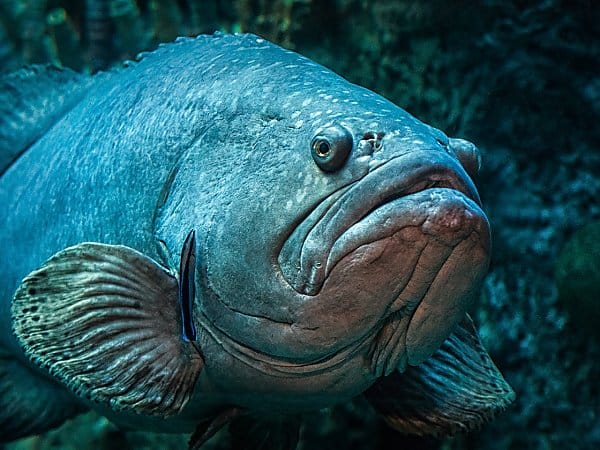Understanding Groupers: A Parent’s Guide to These Fascinating Sea Creatures
Hello curious parents and marine enthusiasts! Are you ready to plunge into the undersea world of groupers? These remarkable fish are not just a favorite among divers and aquatic observers but also play a vital role in the ocean’s ecosystem. Kids are naturally captivated by marine life, and learning about groupers can be an exciting way to nurture that curiosity. Let’s embark on an underwater adventure together and discover the wonders of groupers!
What Are Groupers?
Groupers are a family of fish known scientifically as the Serranidae, which consists of hundreds of species found in tropical and subtropical oceans around the world. These fish are formidable in size, with certain species growing larger than a full-grown man! Their stout bodies and wide mouths give them a distinctive appearance, making them a popular subject in many aquatic documentaries.
Characteristic Features of Groupers
- Size and Shape: Groupers have a robust body and large mouth, which they use to ambush their prey. Usually, they can vary from a few pounds to well over 500 pounds!
- Camouflage: Many groupers have the ability to change color and blend in with their surroundings, a nifty adaptation that’s thrilling to both witness and explain to curious kids!
- Behavior: Groupers are generally solitary, but some species gather together in large groups to spawn, a phenomenon that attracts scuba divers from all over the world.
Why Are Groupers Important to the Ocean’s Health?
Understanding the pivotal role groupers play in marine ecosystems is key. These fish are apex predators, sitting at the top of the food chain and helping maintain a balance in ocean life.
- Keeping Populations in Check: By preying on a variety of species, groupers help regulate the populations of other marine creatures, preventing any one species from dominating the ecosystem.
- Supporting Coral Reefs: Groupers often reside in and around coral reefs. Their hunting activities can help keep reef areas clear of invasive species and contribute to the overall health and diversity of the reef.
Encouraging your kids to learn about the significance of groupers in the ocean is also a fun way to introduce concepts like food chains, predator-prey dynamics, and biodiversity. All those fascinating topics can lead to some interesting dinner table discussions!
Different Species of Groupers
Groupers come in all shapes, sizes, and colors. Here are a few well-known species:
- The Goliath Grouper: Known for its massive size, the Goliath Grouper can grow up to 8 feet long and tip the scales at over 700 pounds!
- The Nassau Grouper: This species is not just known for its striking coloration but also for its amazing mass spawning events, making for a spectacular natural event.
- The Red Grouper: A bit more modest in size, the Red Grouper carves out burrows on the seafloor and is an avid excavator, shaping the seascape around it.
Now that you’re getting familiar with the different kinds of groupers, let’s take a closer look at their habitats and understand where you can find these fascinating creatures in the wild.
The Habitats of Groupers
Grouper habitats can vary significantly depending on the species. Generally, you’ll find groupers in warm ocean waters, especially near coral reefs, rocky outcrops, and seagrass beds. These environments provide the perfect backdrop for groupers to hunt and thrive.
Fun Facts About Groupers
Before we dive deeper, here are a few fun facts that will surely impress your little ones:
- Groupers can live for several decades, with some species like the Warsaw Grouper living up to 50 years or more!
- Despite their heavy-set bodies, groupers can swim quite fast in short bursts, which helps them snatch up their prey.
- Some groupers can make a distinctive sound by vibrating their swim bladder, which is used for communication and can be quite a surprise if you’ve never heard it before.
Isn’t the world of groupers just interesting and full of surprises? We’re just scratching the surface here, but there’s still so much to uncover about these magnificent sea creatures. So, whether you’re teaching your kids about marine life or planning your next aquarium visit, keeping groupers on your radar is a fantastic idea. Stay tuned – we’ll dive even deeper into the remarkable life of groupers, including how to help protect them and ensure they continue to thrive in our oceans for generations to come!

5 Things Parents Should Know When Preparing for a Grouper Experience
1. Understanding Grouper Size and Behavior
First and foremost, it’s important for parents to comprehend the potentially large size of groupers and their solitary nature. However, don’t let their size intimidate you—their docile nature makes them a fascinating spectacle rather than a threat. When preparing to encounter groupers, whether in the wild or at an aquarium, explain to your children that despite their large mouths and robust size, groupers are not interested in humans, and respecting marine life is crucial.
2. The Importance of Respect for Marine Life
Teach your children the importance of respecting grouper habitats and marine life. Inform them about the hands-off policy—no touching, feeding, or disturbing these sea creatures and their environment. Preserving the natural behavior of groupers is not only essential for their well-being but also for sustaining the ecological balance.
3. Safe and Responsible Wildlife Watching
Whether you’re planning a scuba diving trip or a snorkeling adventure to observe groupers, it’s crucial to choose responsible tour operators who prioritize the safety of both the wildlife and their guests. Equip your family with well-fitting gear, and always follow the guide’s instructions for a safe experience.
4. Snorkeling and Diving Precautions
While groupers are generally harmless, there are general precautions to take when snorkeling or diving. Ensure your family is comfortable in water. If encountering groupers during a dive, remember that they can be territorial. Keeping a safe distance allows you and your family to observe their natural behavior without causing distress.
5. Learning About Conservation Efforts
Finally, it’s a wonderful opportunity to teach your kids about conservation. Many grouper species are under threat due to overfishing and habitat destruction. Learning about conservation efforts and marine protected areas can foster a sense of responsibility and eagerness to contribute to preserving marine life.
Now that you’re equipped with this handy knowledge, you and your family are all set for an upcoming grouper encounter! Remember, every marine experience is a chance to inspire the next generation of ocean stewards. Enjoy the wonders of the underwater world and its inhabitants, and let your curiosity about groupers lead to many memorable discoveries and learning moments.
Protecting Groupers and Their Ecosystem
As we marvel at the wonders of groupers and their contributions to marine ecosystems, it’s essential to recognize the need for protective measures. Conservation efforts for groupers include establishing no-take zones, where fishing is prohibited, and implementing size limits to ensure the survival of mature, reproductive individuals. It’s also vital to support sustainable fisheries and avoid purchasing grouper meat from unregulated sources.
Education plays a significant role in conservation. By learning and spreading awareness about groupers and their habitats, we can encourage responsible practices and policies. Engaging in citizen science programs, supporting research efforts, and choosing eco-friendly tourism options are all ways families can make a positive impact.
By teaching our children about the ecological importance of groupers, we embark on a journey to protect these fantastic creatures and secure their place in the ocean’s narrative. Groupers have graced the seas for millions of years, and with our help, they’ll continue to do so for many more generations. Let the grandeur of groupers awe and inspire us as we commit to their conservation and the well-being of our blue planet.
For more great fun click here. For more information see here
Disclaimer
The articles available via our website provide general information only and we strongly urge readers to exercise caution and conduct their own thorough research and fact-checking. The information presented should not be taken as absolute truth, and, to the maximum extent permitted by law, we will not be held liable for any inaccuracies or errors in the content. It is essential for individuals to independently verify and validate the information before making any decisions or taking any actions based on the articles.




